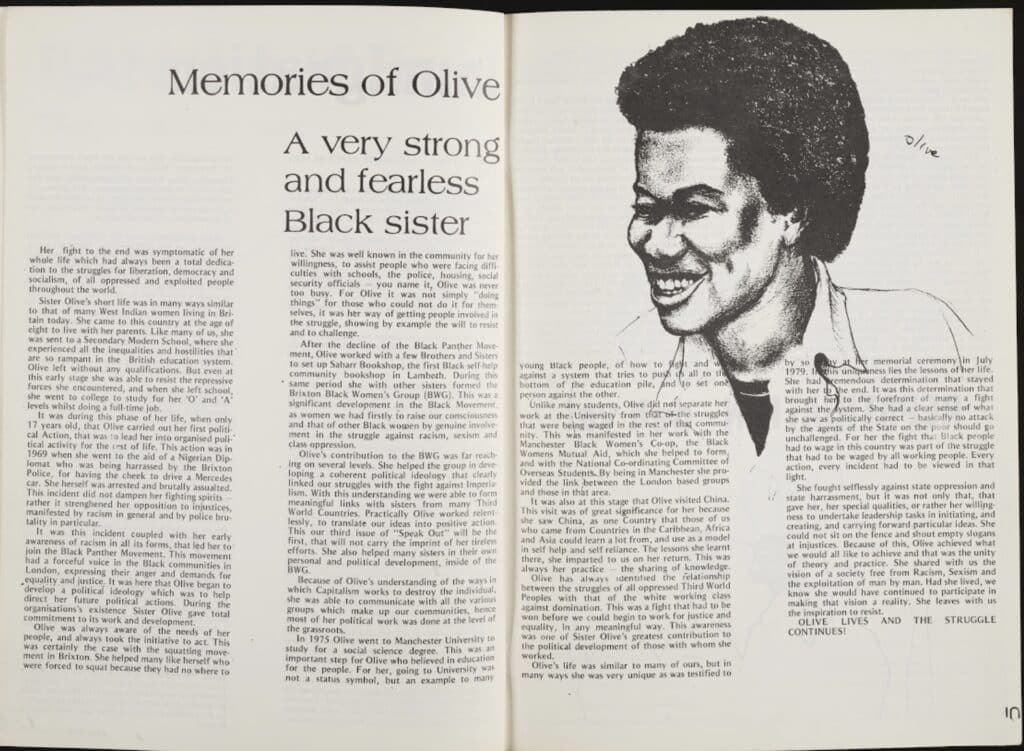Spotlight: Olive Morris
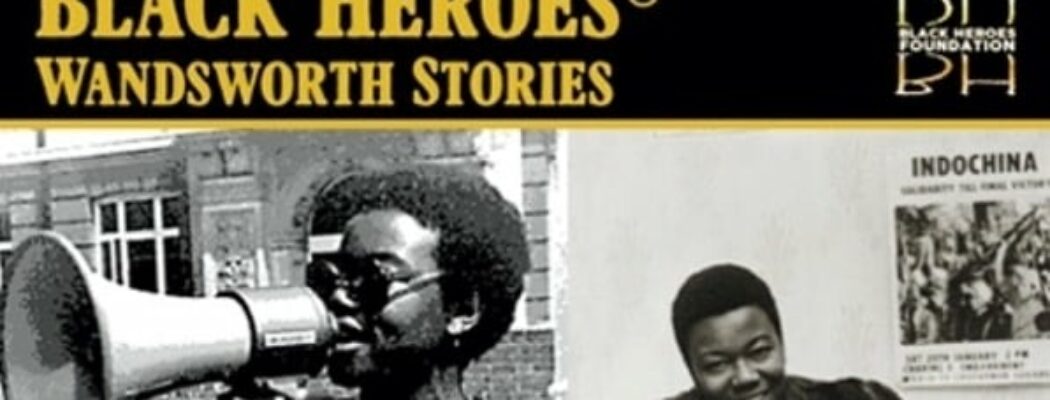

As part of Wandsworth Art’s Black History Month programme, which celebrates and honours work by local Black artists, writers, and community leaders and the great contributions they make to Wandsworth’s rich culture, we invited Black Heroes Foundation to write about a local person they’d like to celebrate.
In this post, Joyce Fraser, the Chair of Black Heroes Foundation, charts the life of the remarkable Olive Morris (1952–1979), who courageously fought against racial, class and gender oppression and laid the groundwork for many Black Feminist groups in Britain. In her short life, she left behind an extraordinary legacy of local activism.
Black Heroes Foundation uses the arts to celebrate and tell the stories of our Heroes, to eradicate ignorance of Black Heritage, and to encourage better understanding of and further enhance our multicultural society. Read more about their work here.
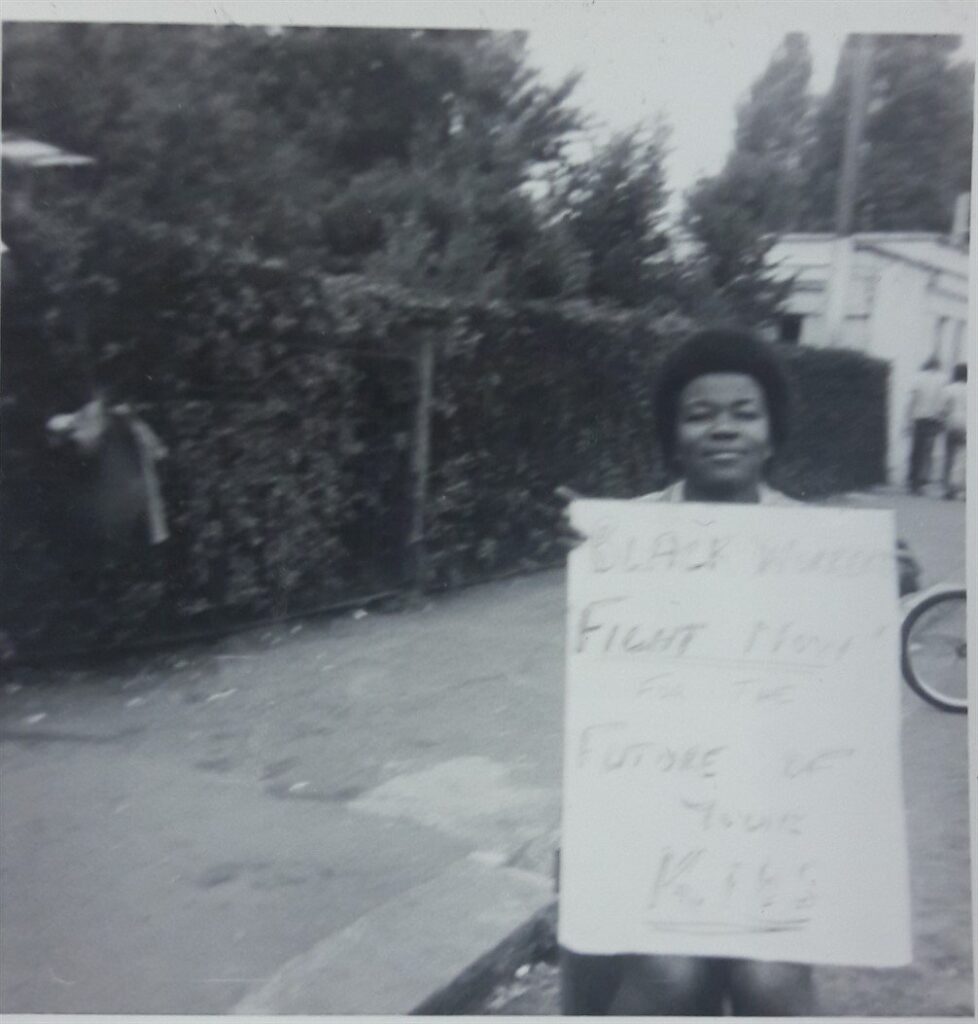
Born 26 June 1952, St Catherine, Jamaica, in her early years Olive Morris was brought up by her grandmother. She came to the United Kingdom aged nine with her brother, where she joined her parents Vincent and Doris Morris and four other siblings. They lived in Milford Street, off Wandsworth Road. She attended Heathbrook primary school, and Lavender Hill Girls school.
Olive went on to study economics and sociology at the University of Manchester, where she was involved with the Manchester Black Women’s Co-operative and other organisations.
Olive Morris later lived in Brixton, where a lot of her activism against racism and sexism took place. Aged just 17 she was involved in an incident regarding the arrest of a Nigerian diplomat for parking offences using the notorious “sus” laws (a reference to a “suspected person”, it was an act that allowed police to stop and search people they suspected of loitering with intent to commit an arrestable offence, which Black people often found themselves the target of). Police officers thought the diplomat had stolen the car, and began to arrest and beat him. Olive, just five foot two inches tall, intervened, causing the police to turn on her, arrest her and assault her, kicking her in the chest. This was one early incident of Olive’s commitment to challenging injustice.
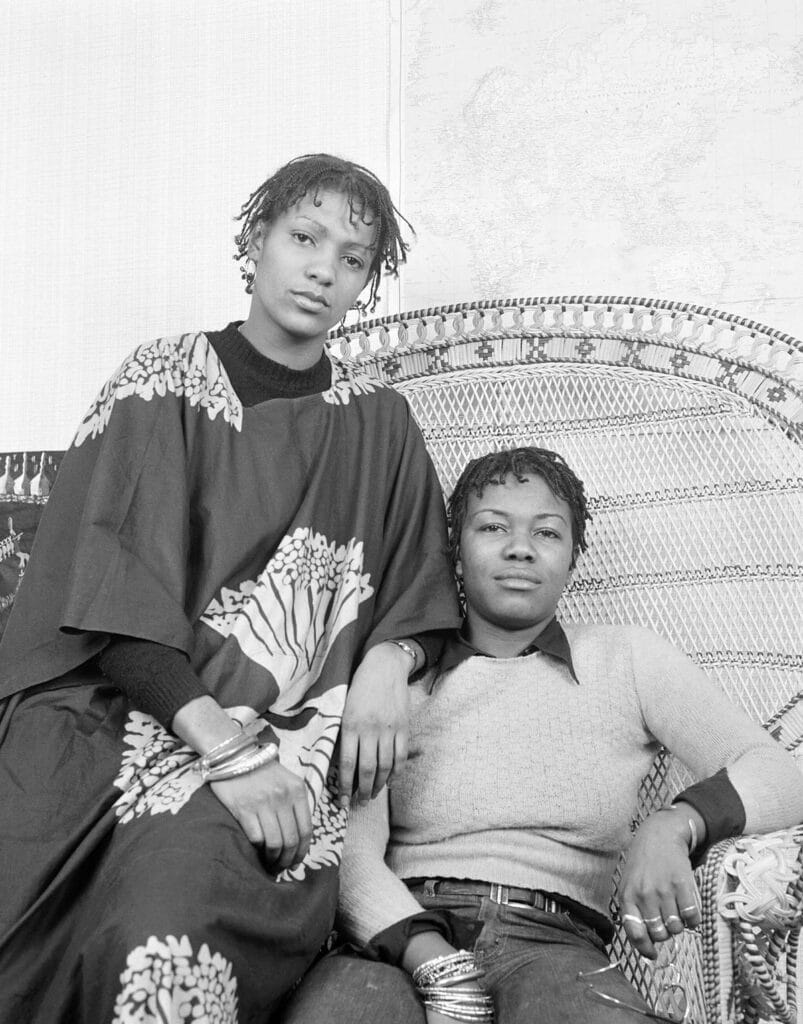
She co-founded several women’s groups such as the Brixton Black Women’s’ Group and became a member of the British Black Panthers in 1968, working with the likes of Linton Kwesi Johnson, Clovis Reid and Farrukh Dhondy. She was involved in many forms of activism: from campaigning to scrap sus laws to squatting (she even appeared on the front of the Squatter’s Handbook in 1976). One squat at 121 Railton Road created homes for community hubs, such as the Sabarr Bookshop. After graduating in 1978 she worked for Brixton Community Law Centre, campaigning for sus laws to be scrapped.
Unfortunately, Olive died young, aged just 27 years old. Whilst travelling in Spain she became ill, and on returning home was diagnosed with cancer. She passed away on 12 July 1979 at St Thomas’s Hospital, the site of the Mary Seacole statue, another great Black Woman of London.
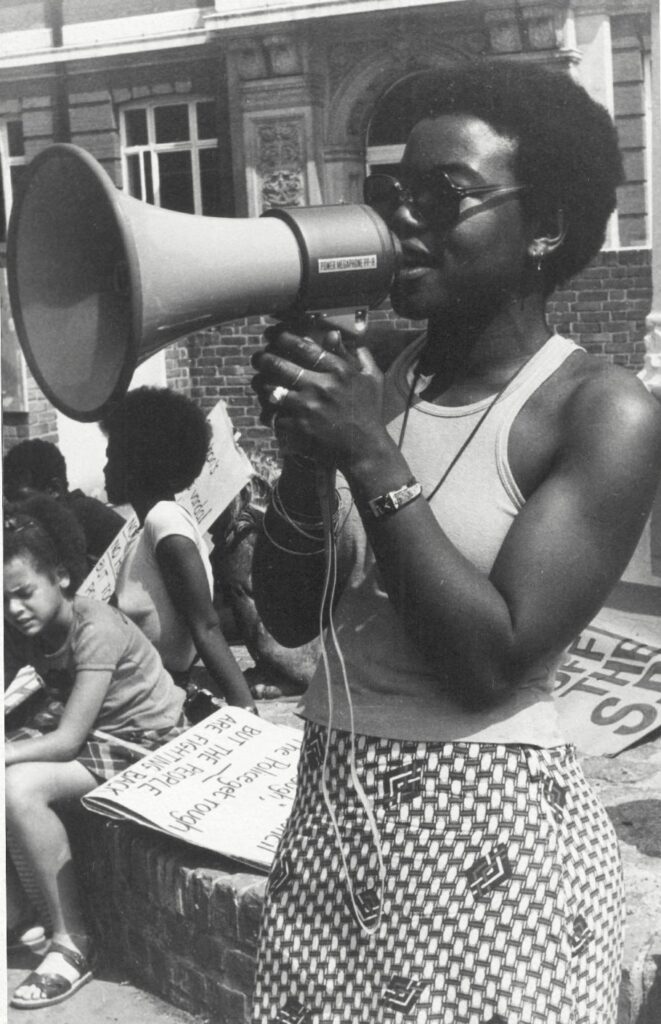
Olive Elaine Morris is remembered. A Lambeth building on 18 Brixton Hill is called the Olive Morris Building and a community garden in the Myatt’s Fields area is named after her. In 2009 the local currency – The Brixton Pound – featured an image of her.
In 2011, the Olive Morris Memorial Award was launched for women aged 16 to 27, of African or Asian descent, involved in grassroots works.
We salute the Great Black Woman, Olive Morris.
